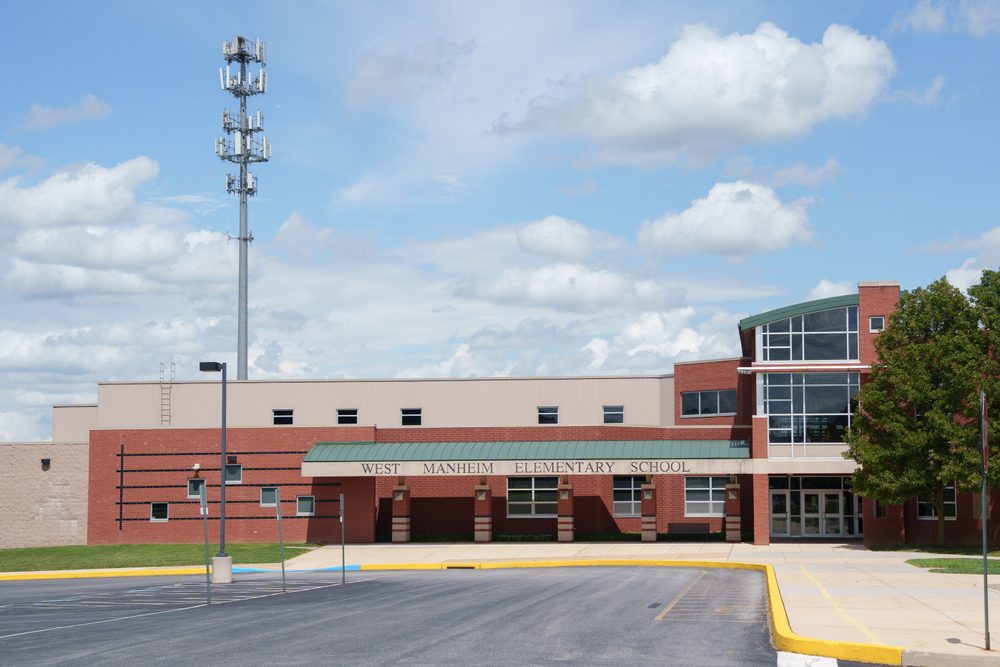
Getty images
Due to loopholes in the Clean Indoor Air Act of 2008, more than 1,300 venues in Pennsylvania still allow patrons to smoke indoors. A new bill is trying to change that.
Michael Danay was diagnosed with asthma when he was young.
While it has been pretty much under control most of his life, there are days when he’s working his job at a Philadelphia casino that his eyes water and he has trouble breathing.
That’s because smoking is allowed on Pennsylvania casino floors, where Danay has worked for the past 20 years.
In Pennsylvania, due to exemptions in the Clean Indoor Air Act of 2008, more than 1,300 venues, including casinos, truck stops, bars where food sales account for less than 20% of the establishment’s business, as well as private clubs and cigar bars, are still able to allow patrons to smoke inside.
“I’m not a smoker,” said Danay, who works at Live! Casino & Hotel in South Philadelphia. “But I might as well be.”
The American Lung Association has been working for years to update the commonwealth’s indoor smoking policy on behalf of suffering hospitality industry workers like Danay, according to Aimee Van Cleave, Advocacy Director for the American Lung Association in Pennsylvania.
“We work rather closely with a number of casino workers who especially suffer,” Van Cleave said. “Because of the conditions in casinos, these employees are breathing in second-hand smoke the entirety of their shift. These are people who go to work every day and run into something we know is harming them.”
Secondhand smoke contains hundreds of chemicals known to be toxic or carcinogenic and can cause lung cancer, heart disease, stroke and other diseases.
According to the Pennsylvania Alliance to Control Tobacco, a study of air quality impacting the state’s hospitality industry workforce before and after the Clean Indoor Act of 2008 found that indoor air pollution levels in newly smoke-free venues declined by nearly 90 percent. It estimates that smoke-free air across all venues would save 52 hospitality workers’ lives annually.
To that end, state Rep. Dan Frankel (D-Allegheny) has introduced House Bill 1657, which would close the loopholes in the Clean Indoor Air Act, expand the definition of smoking to include e-cigarettes, and give all localities the ability to enact smoke-free ordinances that are more protective than state law. It is currently in the House awaiting a vote.
“Everyone is entitled to work in and patronize a venue that isn’t going to poison them,” Frankel said.
HB 1657
Frankel was very involved in 2008 during the passage of the Clean Indoor Air Act, but it was controversial at the time and exemptions had to be made for the bill to pass. While he’s advocating for stricter policies, Frankel said compromise will again be the key to getting his new bill passed.
Casinos especially, Frankel said, are not happy about the potential of a smoke-free policy. While casino representatives have refused to testify at any public hearings, and have said if the law is passed they will comply, they have been quietly advocating against it, according to Frankel. In fact, Frankel said, state legislators from both sides of the aisle who have a casino in their district are skittish about the proposed new policy.
One compromise Frankel has relented to is allowing smoking on outdoor patios. The key, he said, is ensuring outdoor patios are clearly defined.
“If you have an outdoor structure that has maybe only one open wall, and the rest is walled in, is that an outdoor patio?” Frankel said. “That is something we have to work on better defining.”
Currently, casinos are allowed to have designated smoking areas. Some even still allow smoking at the tables. But, as Danay points out, smoke doesn’t know where to stop. And casinos do little to ensure the designated sections are enforced.
“People don’t listen to the rules,” Danay said. “I’ve seen people light up in the non-smoking sections. I’ve seen people carry ashtrays from the smoking section to the non-smoking section. But does it really matter? Even if you walk into a casino in the non-smoking section, you can still smell smoke.”
As Frankel points out, casinos employ thousands of people in the state, which is why he thinks it’s important a smoke free policy is implemented.
“Casino jobs are good paying jobs,” Frankel said. “They have good benefits but these employees are being forced to pick between a good job and their own health.”
Another compromise that might be needed to pass Frankel’s new bill involves private clubs. While younger patrons of private clubs, such as American Legions and VFWs, support a smoke free environment, many of the clubs are still run by older generations who don’t want things to change, Frankel said.
“Private clubs currently have votes every about two years on the smoking policy,” Frankel said. “But it is the older members who are able to vote because the votes are taken during the day and the younger members are at work and not able to participate. We are trying to work around that. I think it should be up to the full membership and there should be an annual vote on whether or not the private club should allow smoking inside. That might be another compromise that needs to be added to the bill.”
Frankel is optimistic that HB 1657 will be passed in the current legislative session. He has support in the Senate and believes the few compromises he’s allowed will be enough to get the measure passed.
Smoke-free policy poll
It seems the support for a 100% smoke-free policy extends beyond the state government as well. According to a poll conducted by Susquehanna Polling and Research on behalf of the Pennsylvania Alliance to Control Tobacco, 75% of Pennsylvanians support protecting workers by making workplaces and public venues smokefree.
“This data shows that smoke free policies are not only the right thing to do to protect public health, but they are also incredibly popular with Pennsylvanians,” Van Cleave said. “Regardless of geographic makeup or political party, what we have here is a sign that it is beyond time for legislators to protect workers and patrons from the dangers of secondhand smoke. No one should have to choose between their health and their paycheck — and Pennsylvanians agree.”
Of the other 25% that didn’t support the policy, Van Cleave said, 8% were actually neutral on the topic, meaning they were neither for nor against it. So only a small percent of Pennsylvanians are actually opposed to a smoke-free policy..
To fully understand the negative effects of secondhand smoke on someone, look no further than a casino, Van Cleave said. She has talked with workers who have been hospitalized due to health complications from secondhand smoke. Danay has seen coworkers pass out from breathing in secondhand smoke throughout their shift. He goes home smelling like smoke every work day.
“Every day legislators wait to take action is another day that these workers are impacted by this,” Van Cleave said.
Support Our Cause
Thank you for taking the time to read our work. Before you go, we hope you'll consider supporting our values-driven journalism, which has always strived to make clear what's really at stake for Pennsylvanians and our future.
Since day one, our goal here at The Keystone has always been to empower people across the commonwealth with fact-based news and information. We believe that when people are armed with knowledge about what's happening in their local, state, and federal governments—including who is working on their behalf and who is actively trying to block efforts aimed at improving the daily lives of Pennsylvania families—they will be inspired to become civically engaged.


Pa. law makes it illegal to sell tarot readings or love potions. Could that change?
An obscure state law from 1861 prevents fortune telling for profit. State Rep. Greg Scott wants the statute repealed. A fortune teller might be able...

Opinion: Pennsylvania law creates inequality in our schools. It’s time to change that.
Pennsylvania presents a rather contradictory mix of philosophies when it comes to the budget. On the one hand, there is the uniformity clause in the...

Legal cannabis, raising wages, and skilled games: Top takeaways from Josh Shapiro’s budget proposal
Gov. Josh Shapiro highlighted his track record and called for legalizing adult-use cannabis, regulating skill games, and restoring housing rights...

Pa. House Democrats share competing visions for legalizing adult-use cannabis
Pennsylvania House Democrats have begun circulating multiple cosponsor memos laying the groundwork for legalizing adult-use cannabis. Social equity,...

Pennsylvania row officers to be sworn in, marking first time Republicans hold all three offices
Pennsylvania's three Republican row officers are to be sworn in on Tuesday, marking the first Republicans have held all three offices HARRISBURG,...





